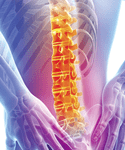For a study, researchers sought to summarize recent research on adult spinal deformity (ASD) treatment failures and the steps that could be taken to avoid them. There was compelling evidence that patients who undergo ASD surgery can experience major clinical benefits as a result. Particularly in the aged population with numerous comorbidities, the volume of ASD surgeries was rising and becoming noticeably more complicated. ASD surgery still carries a considerable risk of serious complications and even complete failure, despite the possibility of great improvements in pain and impairment. The PubMed database was thoroughly searched for literature related to failure following ASD surgery. No permission from the institutional review board was required. Clinical failure, radiographic failure, the requirement for reoperation, and lack of cost-effectiveness are the 4 well-defined phenotypes that failure and the possible need for revision surgery typically fall into. Because of the relatively large number of revision operations that were required, the overall cost-effectiveness of these therapies was called into question. Incorporating the primary evidence that surrounds failure may be 1 way to drive new research and innovation in the past, which might drastically improve the safety and cost-effectiveness of ASD surgery and make it more cost-effective overall.
The Failure of Adult Spinal Deformity Surgery


